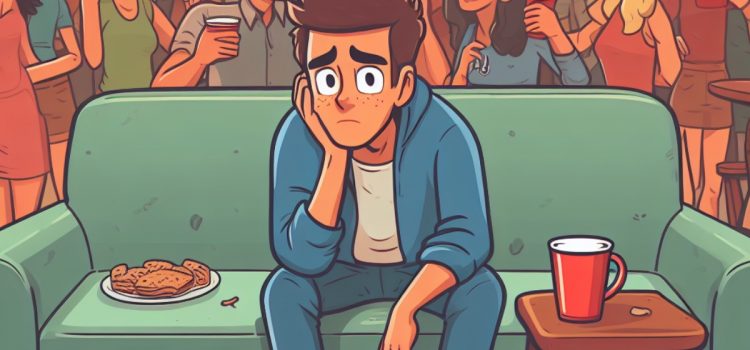
What’s situational anxiety? Is there a way to treat it?
Situational anxiety happens when you feel abnormally nervous about a new situation or environment. This could range from interviewing for a new job to meeting a new group of people at a party.
Continue reading for situational anxiety treatments that’ll help you.
Managing Situational Anxiety
According to Sarah Knight, there are a couple of situational anxiety treatments (besides medication):
First, address the situation directly. For example, if you’re anxious about telling your grandmother that you broke her heirloom vase, just do it and get it over with. She’ll probably still love you afterward.
| The Difference Between Situational Anxiety and Generalized Anxiety Disorder Knight focuses her discussion on situational anxiety, a type of stress or fear that occurs due to specific situations or events. For example, people may experience situational anxiety before a job interview or a difficult conversation. It’s usually short-term and disappears once the precipitating event is over. Generalized Anxiety Disorder (GAD), on the other hand, is a chronic mental health condition characterized by persistent and excessive worry about various things, including daily activities, health, family, money, and work. People with GAD find it hard to control their worry and may always anticipate a catastrophic outcome, even when there’s no apparent reason for concern. This anxiety lasts for months and can interfere with daily life. If you believe you’re suffering from Generalized Anxiety Disorder (GAD), seek help from a mental health professional. They can make a diagnosis and guide you toward the most suitable treatment for you. Possible treatments may include Cognitive Behavioral Therapy (CBT), medication, or support groups. |
There are also situations in which Knight recommends temporarily holding off on addressing the issue. You might find that something that seems like a big deal turns out to be nothing after some reflection, so try journaling about what you’re feeling and see how you feel afterward. For example, imagine your feelings are hurt because a friend didn’t invite you to a baby shower. But, upon reflection, you acknowledge you hate baby showers, and your friend, knowing this, was likely just trying to save you from misery.
| To Reflect on Your Emotions, Use System 2 Thinking Knight emphasizes the importance of personal reflection in navigating challenging emotions like anxiety. Knight’s advice aligns with the concept of System 2 thinking, which Daniel Kahneman explores in Thinking, Fast and Slow. Kahneman describes System 2 as a slow and deliberate analysis mode of the brain that’s responsible for decoding and processing our initial emotional responses. By consciously engaging with System 2 thought, you have the ability to critically assess your initial emotional reactions and gain a deeper understanding of the underlying factors that influence them. This self-reflective process gives you the opportunity to challenge any misinterpretations or biases that may be affecting your emotional responses, preventing impulsive and potentially harmful reactions. |
While it can be helpful to hold off on taking action, Knight emphasizes that taking time isn’t the same as avoidance. If you don’t address things that need to be addressed, they tend to get worse over time. For example, if you ignore a mounting credit card bill, the interest will keep accruing, turning a manageable debt into a financial crisis down the line. Or, if you avoid a minor health issue due to fear or discomfort, it could escalate into a serious condition over time. In these cases, avoidance doesn’t solve the problem but rather exacerbates it.
(Shortform note: Knight explains that when we avoid things they often get worse, a concept that’s known in behavioral economics as the ostrich effect. The ostrich effect, named after the common misconception that ostriches bury their heads in the sand when scared, refers to the tendency to ignore or avoid negative information. By neglecting potentially impactful information, people prioritize short-term emotional relief over long-term rationality, which can lead to poor decision-making. This behavior can have detrimental effects, as avoiding problems doesn’t solve them but rather exacerbates them over time.)






